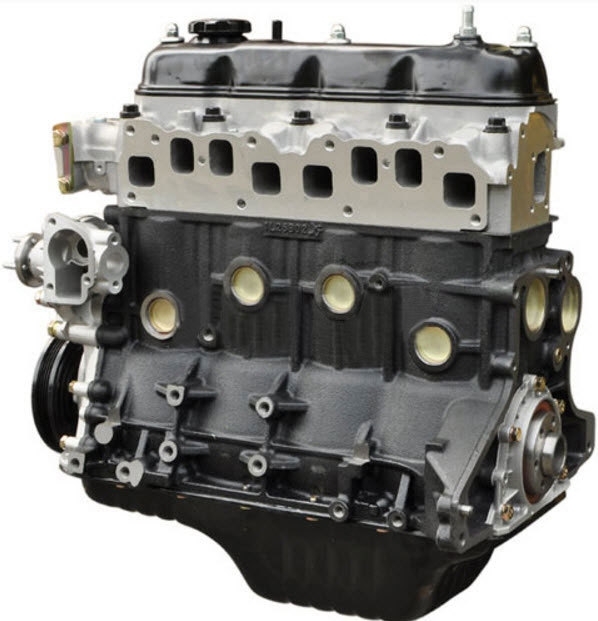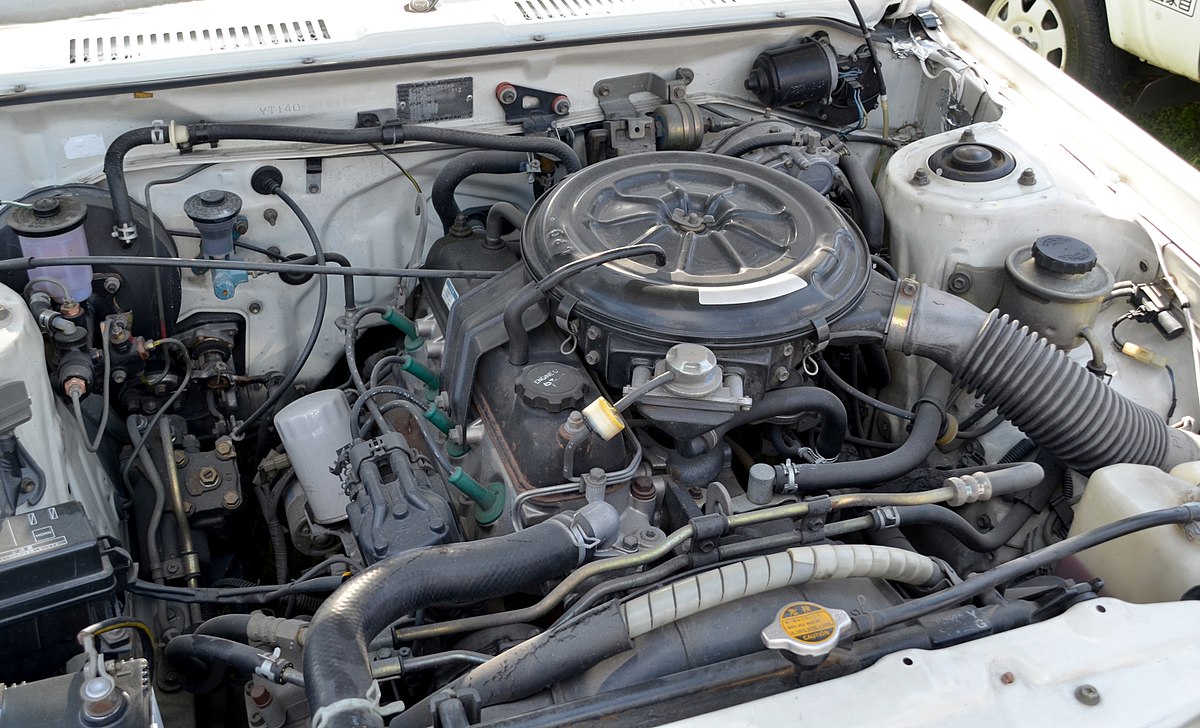How to Troubleshoot Common Issues with the 4Y Engine
How to Troubleshoot Common Issues with the 4Y Engine
Blog Article
Discovering the Various Kinds Of Engine: Which One Fits Your Needs?
Inner burning engines proceed to control due to their dependability, while electric engines are acquiring grip for their sustainability. Crossbreed engines provide a flexible compromise, and diesel engines stand out for their power in demanding applications.

Interior Combustion Engines
Internal burning engines (ICEs) are the foundation of contemporary transportation, powering a vast selection of lorries from autos to aircrafts. These engines operate on the principle of transforming fuel into mechanical energy via a collection of regulated surges within a burning chamber. One of the most common kinds of ICEs consist of gasoline engines, diesel engines, and rotary engines, each designed to meet details performance and performance requirements.
Fuel engines commonly use trigger ignition, while diesel engines count on compression ignition, leading to distinctive differences in gas performance and power outcome (4y engine). Rotating engines, or Wankel engines, offer a small layout and smooth operation, yet are less frequently made use of in mainstream applications
ICEs have actually undergone significant improvements in innovation, consisting of the introduction of turbocharging and fuel injection systems, which improve general effectiveness and efficiency. Regardless of their performance improvements, ICEs deal with raising analysis due to their ecological impact, particularly concerning greenhouse gas exhausts.
Electric Engines
As issues regarding environmental sustainability and fossil fuel dependency expand, electrical engines have emerged as an engaging choice to interior combustion engines. These engines utilize electrical motors powered by batteries or gas cells, offering a cleaner and more efficient ways of propulsion.
Among the primary advantages of electric engines is their minimized emissions. Unlike conventional engines that burn fossil fuels, electrical engines generate no tailpipe emissions, significantly decreasing air contamination and contributing to boosted public health and wellness. Additionally, the performance of electric motors typically surpasses that of inner combustion engines, transforming a higher percentage of energy from the power source right into usable power for movement.
Electric engines are additionally significant for their quiet procedure, making them optimal for urban settings. 4y engine. The simplicity of their style leads to less moving components, which can result in lowered maintenance prices and enhanced integrity in time
Nonetheless, difficulties continue to be, including battery manufacturing influences, charging framework, and range restrictions. Regardless of these obstacles, the expanding investment in electric lorry technology and renewable resource resources factors toward an appealing future for electrical engines, positioned to play an essential duty in the transition toward lasting transportation.
Hybrid Engines
Mixing the benefits of both conventional and electric inner burning engines, hybrid engines represent a functional solution in the quest for effective and lasting transportation. These engines integrate a fuel or diesel engine with an electric motor, enabling for boosted gas efficiency and minimized exhausts compared to traditional lorries.
Hybrid engines operate in a number of settings, making use of the electric motor for low-speed driving and the look at more info internal combustion engine for higher speeds or when more power is required. This vibrant operation not only boosts fuel economic climate yet also adds to a smoother driving experience. Regenerative braking is one more essential attribute, recording power commonly shed throughout stopping and rerouting it to charge the battery.

As consumers increasingly focus on eco-friendliness, hybrid engines stand out as a practical selection, providing an effective equilibrium of performance, performance, and ecological responsibility. This flexibility makes them appropriate for urban travelling and long-distance travel alike.
Diesel Motor
Effectiveness and power are hallmarks of diesel motor, which have long been preferred for their toughness and fuel economic situation. These engines operate on the concept of compression ignition, where air is compressed to a high temperature prior to fuel is infused, igniting it without the requirement for ignition system. This procedure enables diesel motor to accomplish higher thermal performance compared to gasoline engines, converting right into better fuel gas mileage and reduced co2 discharges.
Diesel motor are particularly fit for heavy-duty applications such as vehicles, buses, and industrial machinery, where torque and longevity are critical. Their design usually consists of stronger parts to endure the greater pressures created throughout procedure, leading to longer life span and decreased upkeep costs.

Different Gas Engines
While diesel motor have long dominated the landscape of sturdy power resources, alternate fuel engines are gaining grip as feasible choices for a more lasting future. These engines use a range of gas, such as pressed natural gas (CNG), hydrogen, ethanol, and lp, aiming to reduce greenhouse gas exhausts Clicking Here and reliance on nonrenewable fuel sources.
One substantial advantage of alternative gas engines is their prospective to reduced carbon footprints. For example, CNG engines produce less contaminants compared to typical diesel engines, making them ideal for metropolitan transportation systems and fleets seeking to enhance air top quality. Ethanol, originated from biomass, not just reduces exhausts but additionally supports farming economic climates.
Hydrogen fuel cells stand for an advanced growth in this realm, offering zero-emission power with a chain reaction between hydrogen and oxygen. Nonetheless, challenges such as framework advancement and manufacturing costs continue to be obstacles to prevalent fostering - 4y engine.
Conclusion
Internal combustion engines offer reliability, while electrical engines focus on sustainability and minimized upkeep. Hybrid engines combine the advantages of both, enhancing performance, whereas diesel engines give superior power and torque for sturdy applications.
Crossbreed engines use a flexible compromise, and diesel engines stand out for their power in requiring applications. The most usual types of ICEs include fuel engines, diesel engines, and rotating engines, each created to meet specific efficiency and performance requirements.
Unlike traditional engines that melt fossil gas, electric engines produce absolutely no tailpipe discharges, substantially reducing air pollution and adding to enhanced public health.Crossbreed engines operate in several settings, using the electric motor for low-speed driving and the inner burning engine for higher rates or when more power is required. Crossbreed engines integrate the advantages of both, boosting effectiveness, whereas diesel engines supply see here exceptional power and torque for heavy-duty applications.
Report this page